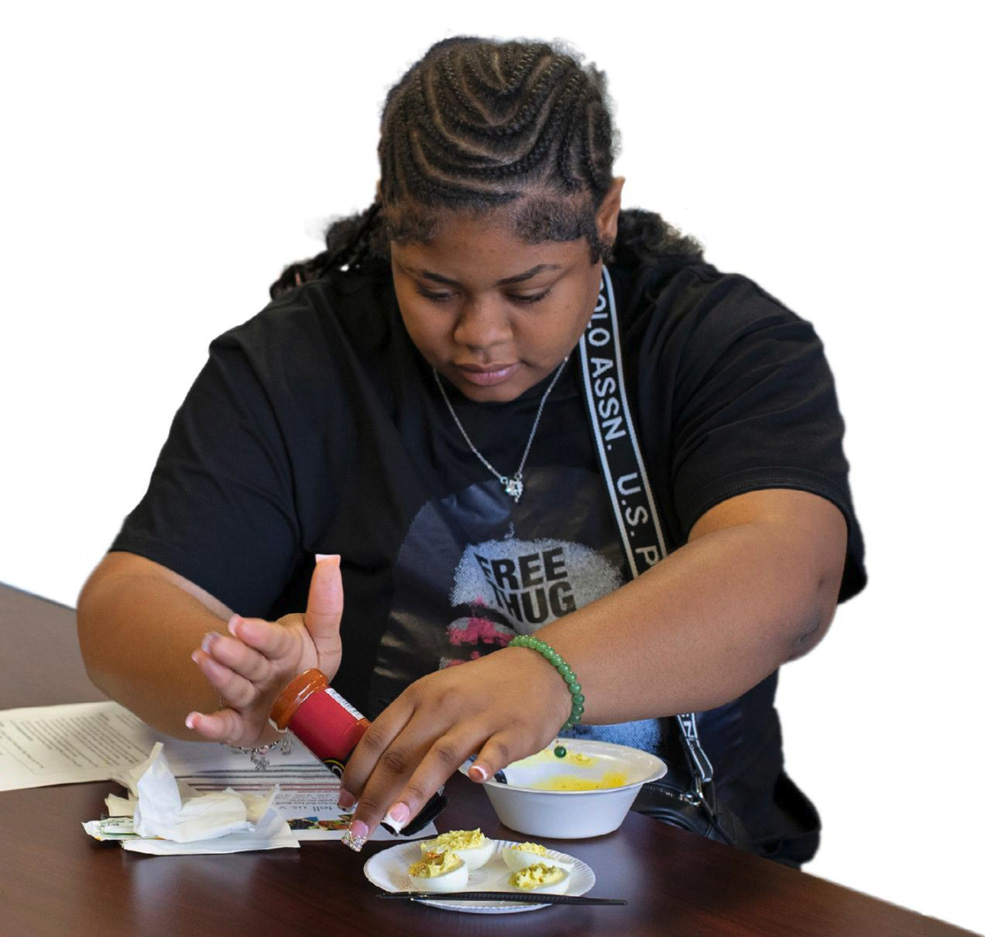
3 minute read
Granted a Choice
By Sam Kulp
The AIU’s Alternative Education Program recently received a grant to put a new spin on breakfast—introducing new options by way of food carts at Community Schools East and West. With no cafeterias in either school due to limited space and equipment, grants like these bring a cascade of positive changes—starting with ensuring every student has a chance to begin their day with a nutritious meal. A transformative element of the grant is a seemingly simple yet profoundly impactful question posed to students: ‘What do you want for breakfast?'
Food service coordinator Carmel Davenport has played a critical role in the grant’s success by identifying key issues the breakfast carts can “Having the food be more organized and accessible is really huge for the schools,” Davenport said. “Kids will grab and go with the carts and start eating breakfast more often.”

For many students in the Community Schools program— where access to regular meals outside the school day is often uncertain—the grant ensures they can count on a reliable, nutritious breakfast each day, offering a foundation for improved focus and learning. Students who eat breakfast are more alert, more engaged, and eager to learn—paving the way for an enriching school day. Educating parents is part of the effort. “We send letters to students and parents about why breakfast is important, educating them on nutrition so they understand what food can do for them,” Davenport said.
The grant allows students to get involved through nutrition lessons combined with hands-on taste tests. Students voiced their opinions on the foods and suggested additions to the menu through open discussions and surveys. making is vital for students; this grant gave students the rare chance to make informed choices for themselves. The smaller student body ensures their voices are heard, respected, and responded to. Many noted it was the first time they were asked their opinions about school food.
While it’s common for kids to be picky with their food options, it can be a helpful exercise to get them to think about what aspects of their food elicit such strong reactions. The grant-funded cooking class for deviled eggs was particularly polarizing, with reactions ranging from theatric retching to requests to finish their peers’ leftovers. By the end of the class, students were encouraged to identify what aspects of the deviled eggs they disliked or liked— including taste, smell, and texture.
Articulating displeasure is important for self-expression and emotional development. Community School East Principal Ronald Graham recalled, “At first, they would say, ‘Oh this is terrible. This is nasty.’ This was also an opportunity for the staff to help the kids learn to share their feelings of dislike in more constructive ways.”

Although there is still the common dislike of some healthy foods among children, the staff have noticed a significant number of students asking for healthy options. “Of course you have kids who just want donuts, like plenty of kids their age,” Davenport said. “But we have a lot of kids who are asking for things like salads, which is great to hear that some kids take their food choices to heart.”
Through this grant, students have a chance to experience agency and accountability for their health choices. “Most times, there simply is no exposure to these ideas,” Graham said. “Here, they can take these ideas home with them and make better food choices.”










